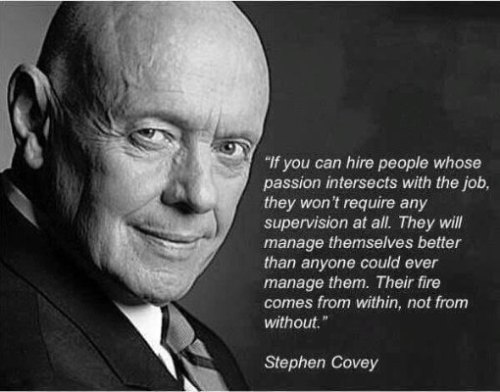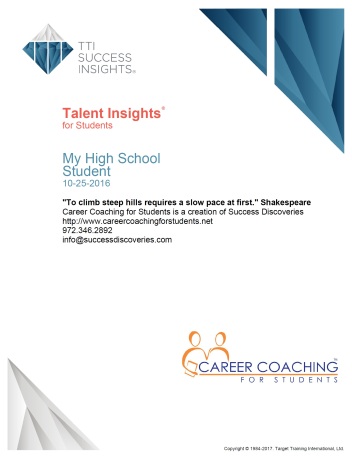 Root cause for college student success? We all hear statistics thrown around about all kinds of issues. What is the true root cause of student success?
Root cause for college student success? We all hear statistics thrown around about all kinds of issues. What is the true root cause of student success?
When it comes to students, college attendance, choosing a major, changing majors, time-to-degree attainment and student debt, there appears to be a correlation between clarity of personal goals and quality of decision making skills at the high school level and the length of time in college, student success and student debt.
But no one is focusing on root cause of student success. They are simply studying what is happening in the general college student population or causes of student failure. In one study, students got it right: it is all about MOTIVATION.
Even a Google search for “Why do college students succeed” produced 65 million hits for opinion articles that were basically “tips” on how to succeed based mostly on study habits. Studying root cause for success is more elusive. Asking students and faculty what causes student failure starts to get at the root cause.
“In short, according to the college students who participated in the study, motivation is the leading cause behind students’ failure or success in completing schoolwork. Motivation influences students’ attitudes, study habits, academic readiness, and so on.” Higher Learning Commission, 2014 Collection of Papers, conclusion of 2011 study of students opinions for success and failure
According to faculty who responded to the survey “Why do students fail?”, the number one reason (37% – 40%) for college student failure was “Not Ready for College“. Other significant reasons listed include Lack of Effort (11% – 13%), Lack of Motivation or Interest (9% – 14%) and Failure of Educational System (14% – 24%).
Not Ready for College
The student-related factor that both two-year and four-year faculty members mentioned most often was students not being ready for college-level work (cited 231 times, or 38% of responses). Faculty members stated many reasons, including the fact that a significant number of incoming students have poor levels of or a complete lack of academic preparedness for college courses, lack of learning and study skills, and/or lack of organizational skills (including time management and setting priorities). More than half of the respondents cited students’ lack of academic preparedness and poor study skills, note-taking skills, reading, and scientific reasoning skills, lack of experience, and more, without directly attributing responsibility. Others specifically blamed students’ K–12 education for this lack of preparedness. It was difficult to separate these two criteria as both dealt with lack of preparation, rendering students not ready for college work. As one respondent said:
They have not been adequately prepared for post-secondary work and may lack foundational skills (such as the ability to write clearly, comprehend readings, follow instructions, etc.) that interfere with their ability to achieve passing grades. For some reason, many students do not learn these skills throughout grade school and high school, and so when they reach college they are not ready for what it demands.
Still others said that students are “underprepared for college-level work in terms of basic writing, reading and thinking skills. For example, they have an inability to think critically, an inability to express oneself in a written format, and an inability to comprehend the nature of assignments.” One respondent said students have a “high school-rooted misconception that one can pass a course without studying,” and several cited the lack of college-level reading and writing skills and other essential study skills.
One faculty member was very specific in pointing blame: “Many of the students (attending) two-year colleges in large cities come from the Urban Public Schools where they have not necessarily encountered a quality education and experienced a deep understanding of real learning as opposed to externalized and superficial learning.”
Another thought that students fail because they have not been exposed to the “academic rigor of college, or the expectations of college work.” Faculty respondents said many students arrive without knowing how to learn, without having the academic prerequisites, or without having the skill set needed to be successful. Many faculty respondents mentioned that students do not know how to be active learners and engaged in the learning process. A number of students do not realize that college requires a higher level of commitment involving a variety of learning skills, such as deep reading, purposeful study, critical thinking, or even asking for help.
Other faculty respondents said students are not aware of the rigors of their chosen discipline. Students can have difficulty in adjusting their own career expectations. Some students have/aspire to become a physician . . . but they do not realize that it is a very difficult and long road academically. Learning is one percent inspiration and 99 percent perspiration . . . some students have not realized this yet.
Respondents saw insufficient academic skills as closely related to lack of time management skills, often mentioning the two in the same sentence. Faculty respondents said too many students do not know how to study or learn, do not know how to organize their time and set priorities, do not ask for help from their instructors or advisors, and do not use available resources, such as the library and tutors. They most likely lack critical thinking skills and other higher-level learning skills so necessary in college. In short, many of them come from high school not yet ready for college-level work and learning.
It was very hard to separate lack of organizational skills from academic preparedness as a reason for student failure. As a separate subcategory, poor time management and organizational skills ranked second as a major roadblock to student success. Faculty respondents said that students could not organize their priorities. They have work, home, social, and school obligations and cannot organize their time to accommodate all of these conflicting time demands. They do not make a plan that enables them to spend the necessary time reading, studying, attending class, completing assignments, and learning. They do not have “contingency plans” in case of illness, child care, work schedule changes, and so forth. As a result, they develop unrealistic expectations and overcommit themselves:
For the most part, students are unrealistic about the time it will require to do the assignments, readings, and problems. They work full time, have family responsibilities, take a full course load, and do not set aside enough time to concentrate on the problem at hand. They are over committed in terms of their time. The data proves out that college students who work more than 20 hours per week in a job have much lower GPAs upon graduation.
In other words, if students have not planned sufficiently to manage their time, they have not got a Plan B in place. They simply “don’t invest the amount of time required or expected” to succeed.
Several faculty members mentioned procrastination as a problem, “waiting until the one before the last to give ‘the best shot,’ forgetting grades are cumulative.” Students start asking for extra-credit assignments, what they can do to make up what they missed, and so on. In short, most respondents mentioned three major problems under this category: overcommitment (jobs, family, and school), unrealistic expectations about the time necessary to do well in college, and the inability to organize their time effectively. Once they get behind, they can no longer catch up.
Will being passionately interested in a specific and “informed” career goal – in high school – change a student’s perspective about academics that lead to that career, time and priority management and personal accountability?
Will high school students be better able to connect the dots and see the bigger picture if they have a personal career goal in mind that they feel is attainable?
Will a realistic and exciting future vision empower a high school student to demand the academic rigor needed to achieve that vision?
Lack of Effort
The next category of student-related issues, ranking third in that area, was Lack of Effort, repeated 72 times, or 12 percent of responses. This category included both Lack of effort and Poor or nonexistent work ethic as subcategories. Many faculty members were disturbed by how many students are satisfied with a grade of C or D instead of working harder to get better grades. A few faculty members stated that even when they give students opportunities to improve their grades by redoing homework, lab reports, or writing assignments, many students do not bother. Some participants stated that students do not exert enough effort and do not bother to find out, either from the instructor or fellow students, how much work is really needed to pass a given class.
Under the subcategory of Poor or nonexistent work ethic, some respondents said that students do not complete assignments but then expect teachers to let them make it up with extra-credit work. Some students expect to pass just because they attend class, and others think that doing ungraded homework is unimportant. Many believe that an open-book exam means they can learn the material while taking the exam. One respondent blamed more than the student: “Work ethic (strengthened by peer behavior AND administration acquiescence) was summarized by the notion, ‘do just enough to get by,’ which is rarely enough to just get by.”
Another said that students expect teachers to excuse multiple missed assignments and absences “based on a student’s circumstances,” which demonstrated a “diminished sense of personal responsibility.” Still another cited a much more serious problem: “They [students] may be collecting financial aid money for living expenses and have no intention of completing a course once they have received all the funds.”
Respondents said failing students come to class late and/or do not show up at all. When they do show up, they send texts or play videos during class or otherwise do not pay attention. They do not read the material before class and do not complete their assignments. Some students do not care if they fail. A few instructors stated that some students do not value education because they do not have to work to pay for it, or if they fail, they can always repeat the course. Bad study habits that worked in high school were also cited more than once; students are unable or unwilling to put effort into learning. This could be due to lack of motivation or inadequate preparation to be successful.
Is lack of student effort or low work ethic a character flaw or an indication the student is disconnected from what motivates them?
By not properly addressing career interest and career matching early in high school, did students adopt a sense of apathy that will continue until career interest and direction are aligned?
Is it possible the student not only lacks a connection to what motivates them but also has a fear of failure that inhibits their ability to pursue goals?
Lack of Motivation or Interest
Lack of Motivation or Interest, engagement, persistence, and “not being active learners” were mentioned frequently in this survey. It ranks third overall, in terms how often it was mentioned, and it was the second most-often-mentioned student-related root-cause factor: 73 times or 12 percent of responses. This category included the following subcategories: Lack of motivation; Don’t-care attitude, or negative attitude; Lack of engagement; Lack of interest, direction, or focus; Don’t want to be in college; and Lack of passion. Some faculty respondents thought that failing students have little understanding of how their education relates to their lives. They do not know what they want in life and have no clear goals as to where they are going. If someone has no idea where they are going, it will likely be extremely difficult to get there.
Other faculty members stated that some college students don’t have a real desire to be in school. Perhaps they are being pressured by family or friends, or perhaps they are drifting in life or repeatedly changing majors.
A few faculty respondents said that even students with passion “often lack the understanding of how specific course(s) fit within the ‘grand scheme,’ especially if they determine (rightly or wrongly) that the course(s) is not on the critical path” to their ultimate goal. Others do not realize the amount of work involved in their majors or cannot decide on a major field of study. Other faculty members said students lack direction, and that “These students attend college with little, if any, goals in mind; education means little to them due to the lack of connection between what they study and their lives.” Finally, a faculty respondent said simply that:
Pursuing a bachelor’s degree is a long-term goal requiring passion, determination, the drive to overcome “hurdles,” and a willingness to do “whatever it takes” to achieve their goal.
If a student comes to college with a clear vision for their future, a vision they have been focused on for at least a year of high school if not since 9th grade, if they see and recognize their talents and interests, if they have created the path for achieving their personal career goals, nothing can stop them. Hurdles become small and student engagement is self-driven.

The statistics are out there. We found the following to be credible references.
Fast Facts: IES NCES National Center for Education Statistics
Digest of Education Statistics, IES, NCES National Center for Education Statistics
Here is what we know from our experience delivering the Career Coaching for Students™ program, looking at the statistics and talking with high school counselors and administrators:
- 99% of students’ parents state “I wish I had this when I was in high school.”
- 99% of students do not receive adequate or competent career coaching in high school or at college.
- The average time to complete an undergraduate degree is five years and 10 months.
- 39% of students completed their undergraduate degree in four years.
- Student debt is rising and is currently at unsustainable levels for most.
- Going beyond four years to complete a degree is a root cause for rising debt.
Students who receive the Career Coaching for Students™ program
- …have a higher grade point average going forward, which we believe is due to greater personal motivation that came from having a clearer and valid vision of a future that they wanted.
- …are more likely not to change college majors
- …are more likely to pursue and complete a double major in four years
- …are more likely to have a summer internship and/or study abroad
- …experience greater satisfaction and happiness in college
- …are more likely to graduate college in 4 years or less and have less debt
- …are employed upon graduating college
Goal of the Career Coaching for Students™ program:
- Provide students with the ability to make better, high-quality decisions.
- Bring clarity about self, interests, talents that results in greater self-motivation and personal accountability.
- Save students money.
- Increase the potential for success and happiness in life and career.

 From the picture above, you can guess the answer. YOUR handshake will have a financial impact on YOU. Guaranteed. So it is very important. Do I have your attention? I hope so.
From the picture above, you can guess the answer. YOUR handshake will have a financial impact on YOU. Guaranteed. So it is very important. Do I have your attention? I hope so. With any assessment used for career matching, it is important that it be valid and reliable. It is also important that it be applied with that same care. When you add age as a criteria, you are simply being more specific about validity and reliability – that is – you are wanting the assessment, the output or report and the process to be valid and reliable for the typical 14 year old.
With any assessment used for career matching, it is important that it be valid and reliable. It is also important that it be applied with that same care. When you add age as a criteria, you are simply being more specific about validity and reliability – that is – you are wanting the assessment, the output or report and the process to be valid and reliable for the typical 14 year old. by
by 
 Most high-achieving students are not provided much attention unless they specifically request assistance. Most students believe they are suppose to somehow magically know what they want to be or have the confidence and ability to figure it out – yet over 90% of students do not have clarity nor the confidence to adequately make decisions effectively.
Most high-achieving students are not provided much attention unless they specifically request assistance. Most students believe they are suppose to somehow magically know what they want to be or have the confidence and ability to figure it out – yet over 90% of students do not have clarity nor the confidence to adequately make decisions effectively.
